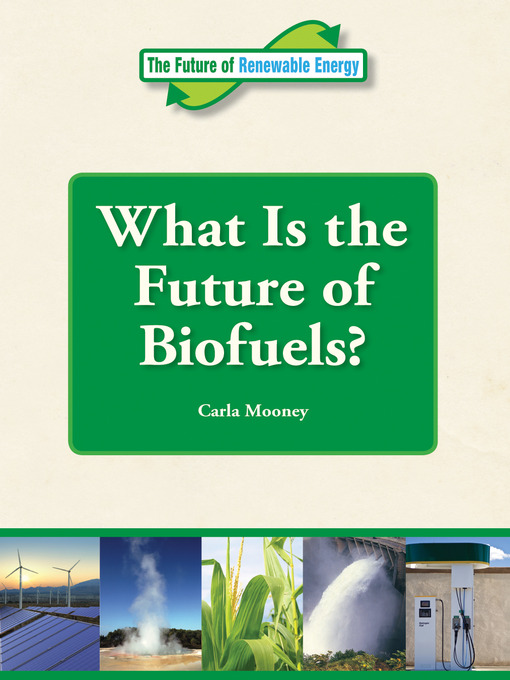Biofuels are considered by some to hold a significant role in the future of alternative energy. Through a narrative-driven pro/con format—supported by facts, quotes, anecdotes, and full-color illustrations —this title examines the future of biofuels. Topics include: Are Biofuels Affordable? How Do Biofuels Impact the Environment? Can Biofuels Ever Replace Fossil Fuels? Should Government Play a Role in Developing Biofuels?
-
Creators
-
Series
-
Publisher
-
Release date
November 19, 2013 -
Formats
-
OverDrive Read
- ISBN: 9781601522733
-
PDF ebook
- ISBN: 9781601522733
- File size: 4560 KB
-
-
Languages
- English
-
Levels
- Lexile® Measure: 1360
- Text Difficulty: 11-12
-
Reviews
-
School Library Journal
November 1, 2012
Gr 8 Up-Chapters debate the pros and cons of energy alternatives in terms of affordability, environmental impact, and potential to replace fossil fuels in these volumes. All but Hydropower devote a section to debating government support. Chapters that discuss whether or not alternative energy can replace fossil fuels seem forced. Proponents contend that the biofuels, solar power, etc., can contribute to energy supply while opponents claim that they are not "viable" replacements. Arguments against government support repeat the same basic statement: superiority of the free-market. Attractive charts and graphs and few photos accompany the texts. Suggested related organizations and websites run the gamut from the Cato Institute to Natural Resources Defense Council, setting up potential comparisons. Libraries with print or online access to the "Opposing Viewpoints" series (Greenhaven) or similar resources may pass on this set. Those with heavy demand for argumentative essays or options for research projects might want these point-counterpoint volumes.
Copyright 2012 School Library Journal, LLC Used with permission.
-
Booklist
February 15, 2013
Grades 7-10 This dry but focused entry in the Future of Renewable Energy series presents in pro-and-con format a rigidly structured set of opposing views on the cost of biofuels, their putative benefits, environmental impact, and general likelihood of replacing fossil fuels anytime soon. Also covered is whether the government should be involved in encouraging biofuel development. Each chapter opens with brief position statements and then expands upon them with frequent references to recently published statistics and publications. Brightly colored charts or tables and, more rarely, photos provide additional information (plus some visual relief). The back matter includes endnotes and summary bullet points followed by large quantities of relevant print and web resources. In general, the pro biofuel arguments focus on long-term potential, which gives the cons, largely fixated on present obstacles, a less-compelling thrustat least, intellectually. Readers after information about what biofuels are or how they are made should look elsewhere, but this offers a convenient, if not entirely evenhanded, gathering of material for reports or formal debates on the question. Use this as a younger-student alternative to Hal Marcovitz's Can Renewable Energy Replace Fossil Fuels? (2010).(Reprinted with permission of Booklist, copyright 2013, American Library Association.)
-
Formats
- OverDrive Read
- PDF ebook
subjects
Languages
- English
Levels
- Lexile® Measure:1360
- Text Difficulty:11-12
Loading
Why is availability limited?
×Availability can change throughout the month based on the library's budget. You can still place a hold on the title, and your hold will be automatically filled as soon as the title is available again.
The Kindle Book format for this title is not supported on:
×Read-along ebook
×The OverDrive Read format of this ebook has professional narration that plays while you read in your browser. Learn more here.


